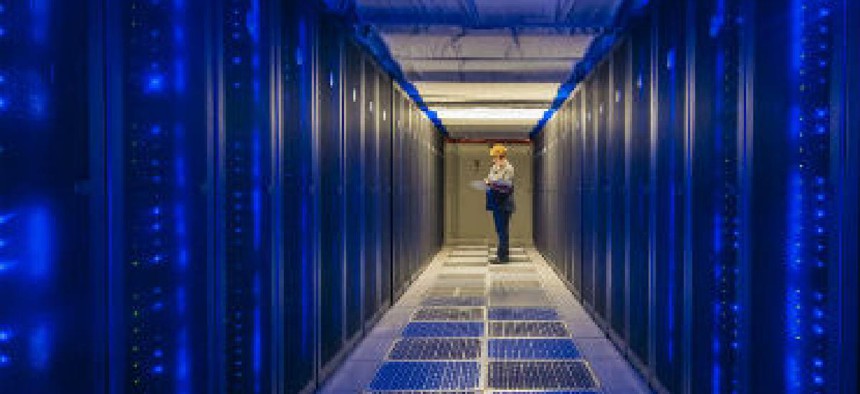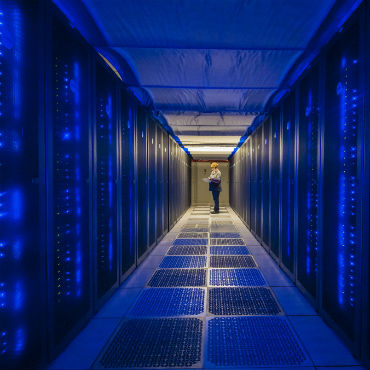HPC boosters back FITARA exemption for national labs

At a Capitol Hill conference, high-performance computer operators and vendors said the powerful machines should not be categorized as garden-variety IT for the purposes of procurement.

The Thunderbird supercomputer at Sandia National Laboratories.
Panelists at a Capitol Hill conference on high-performance computing said they believe supercomputer acquisition should not fall into the same category as everyday technology under the Federal IT Acquisition Reform Act.
The Senate's proposed energy and water development appropriations bill for fiscal 2017 would eliminate a FITARA exemption that keeps IT procurement in the hands of the Energy Department's national laboratories, without the oversight of the DOE CIO.
Some lab officials and vendors object to eliminating the FITARA exemption. "Personally, I think the exemptions should hold so the supercomputers and these high-end scientific instruments are not compromised," said Steven Hammond, director of the Computational Science Center at DOE's National Renewable Energy Laboratory. Supercomputers at the labs should be considered separately from general IT because they are fundamentally different, he added.
"HPC systems have different life cycles, [and] the mechanisms are not something you can buy off the shelf," Hammond said.
"This is not about procurement where you flip through a catalog," said Robert Sorensen, a research vice president in IDC's High Performance Computing Group. "So you really have to look at it more, in some sense, almost as an R&D program/procurement" rather than classifying it with other IT.
The Obama administration remains opposed to a FITARA exemption for the national labs but has proposed substantial financial support to maximize the impact of high-performance computing systems. Officials are seeking $285 million to fund DOE's fiscal 2017 research and development efforts into exascale computing, as part of the National Strategic Computing Initiative (NSCI).
That effort, launched in a 2015 executive order, seeks to reclaim leadership in the supercomputing speed race from China. A new report from the Information Technology and Innovation Foundation, which sponsored the Capitol Hill conference, argues that U.S. leadership in supercomputing is a key strategic and economic imperative.
NSCI's purpose goes beyond building a technically impressive computer, Sorensen said. It is about "building a technology basis [and] keeping the United States as a leading supplier" that improves the quality of products industrywide and sets up the future workforce in an increasingly competitive, global high-performance computing environment, he added.
The DOE appropriations bill hit a snag on April 28 when Senate Democrats blocked cloture in opposition to a policy rider from Sen. Tom Cotton (R-Ark.) that targets a provision of the Obama administration's nuclear deal with Iran. If the bill doesn't pass, or if the entire government is funded on the basis of a continuing resolution for fiscal 2017, the labs' exemption would likely be extended.
NEXT STORY: DOD slammed on ENCORE III contracting


